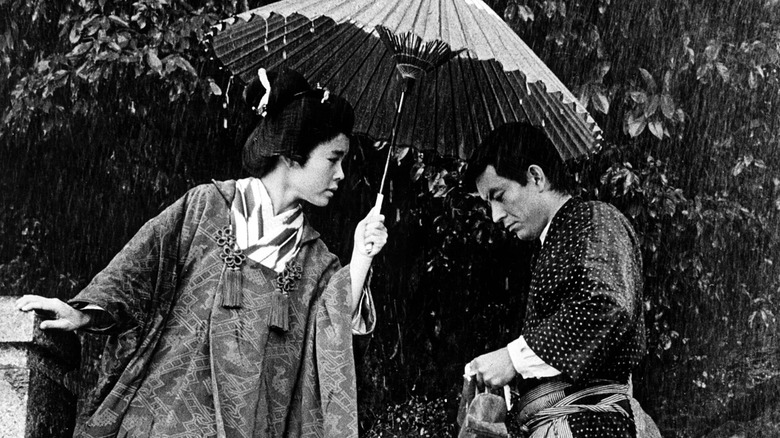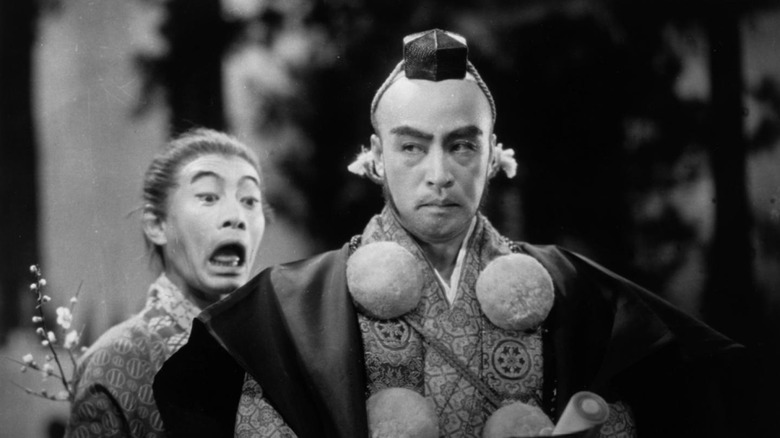Akira Kurosawa's Early Career Was A Constant Struggle With The Censors
The globally acclaimed Japanese filmmaker Akira Kurosawa had a long a fruitful career, but like many artists, it got off to a rocky start. The Japanese government was aligned with the Axis powers in the 1940s and was strongly opposed to Western influences in media. They put extreme censors in place and directors had to gain their approval at each stage of the filmmaking process. For the first several years of his career, Kurosawa had to fight these censors at every turn to get his films made.
Kurosawa's debut film, "Sanshiro Sugata," was not the first original script he submitted to the Japanese censors, but it was the first that got their stamp of approval. The titular protagonist is an aspiring jujitsu artist that abandons his practice to train with a judo master and fight for the love of his former teacher's daughter. The film chiefly explores the key differences in the ancient disciplines of jujitsu and judo, but it includes trademarks from Hollywood movies that almost didn't make it past the censors.
The director was still holding a grudge against the Japanese censors for turning down his first few scripts. He had "maybe more than three" scripts neglected by the censors from Japan's Ministry of Internal Affairs and Communications, Kurosawa recalled in the documentary My Life in Cinema. He "bore a deep grudge against the censors," he told fellow filmmaker Nagisa Ōshima. "Censors were such a formidable presence, taking advantage of their borrowed authority."
Even though he managed to get "Sanshiro Sugata" through the first round of review, he still had to earn the government's approval to release the film. In fact, another beloved Japanese director had to step in to ensure that the film made it past the censors and into theaters.
Kurosawa's work was too Westernized for Japanese censors
When Kurosawa brought his finished debut film before censors, they were extremely reluctant to approve of it. One of them told the director that "the way characters addressed each other, or a kissing scene on a staircase, suggested Western influence," Kurosawa remembered. The filmmaker "reached his tipping point and was about to storm out" when fellow director Yasujirō Ozu chimed in and said that his movie had received a more than perfect score — 120 out of 100 points. "Thanks to Ozu, the movie was approved," Kurosawa asserted.
Mercifully, Japanese filmmakers were not limited by these censors for long. "The first thing the Americans did [after winning World War II] was get rid of the censors. I was impressed by that," the "Seven Samurai" director exclaimed. His final showdown with the Ministry took place after the war, when he made "The Men Who Tread on the Tiger's Tail." The censors no longer had any legal authority, but Kurosawa was summoned before them nonetheless. One of them called the script "worthless," to which the filmmaker retaliated, "If a worthless guy calls it worthless, it must be a good script." Through a technicality, "Tiger's Tail" was shot without proper approval. It would not be released until 1952, when the previous censor was replaced by a more lenient successor.
The Japanese government of the 1940s had a lot of questionable practices, but censoring their media was among the worst. Kurosawa is universally recognized as one of the best filmmakers of all time, and it is heartbreaking to think that the world was deprived of his earliest work in the name of anti-Western sentiment.

